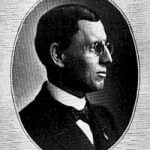
After two weeks of voluntary service in the vicinity of the Academy, visiting Churches, schools, institutes and towns, making the trips through the timber with a team of faithful but superannuated mules, and delivering addresses in as many as eight different places, during the month preceding, the academy was re-opened for a three months term in February, 1905, under the management of Rev. and Mrs. R. E. Flickinger of Fonda, Iowa. They had for their assistants, Miss Adelia M. Eaton, Fonda, Iowa, matron, Miss Bertha L. Ahrens, principal, Miss Malinda A. Hall and Henry C. Shoals, assistants in the cooking and farming departments, and Solomon Buchanan, a volunteer student accompanist and general helper.
Two Fold Organization Of The Workers
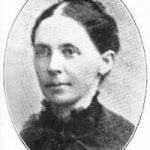
The moral and religious instruction was organized after the following manner. The Bible was supplied and read by all as a daily text book in the school. The lady principal served as superintendent of the Sunday school, and as organist and chorister at all the other meetings. The assistant superintendent took charge of the primary department of the Sunday school, the matron, the Bible class; the assistant matron, the intermediate class, and the general management of the work among the Christian Endeavourers, selecting and aiding the leaders in their preparation for and conduct of their meetings on Sabbath evenings, in which all the students were required to participate. Mr. Buchanan served as organist for the Sunday school and accompanist on the piano at the other meetings.
The superintendent, in addition to attending and participating in the Sabbath school and Endeavor meetings, which were held on Sabbath mornings and evenings, conducted the preaching service on Sabbath morning, the Bible memory meetings at 2:30 on Sabbath afternoons and the mid-week service, which was held on Friday evenings.
Voice Culture
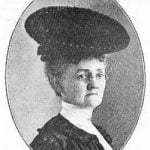
The training and development of their youthful voices, for efficient participation by song or story in religious meetings on their return home, was made a distinct aim and object at the Friday evening meetings.
This special vocal training was based on the fact, that in all the recorded instances of the manifestation of divine or spiritual power, it has been communicated through the use or instrumentality of the human voice. The annual results, of this training of their voices for a sacred use, were a very gratifying surprise to all the patrons of the school.
The superintendent also conducted the family worship at which all of the students and teachers were present. It consisted in the daily reading of the Scriptures and prayer immediately at the close of the morning and evening meals. Twice a week the young people united in repeating a Psalm or other appropriate selection and the Lord’s Prayer.
He also invariably attended and participated by a word of encouragement in the Sunday school and Endeavor meetings.
Character Building
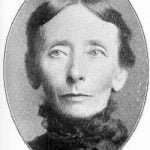
It was the constant endeavor of the superintendent to make the hours spent together on Sabbath afternoons and Friday evenings, not only the most instructive and profitable of all the week to the students, in the matter of their character building, but also the most joyous and happy to all of them. All cares and troubles were forgotten, while repeating responsively and cheerily together many of the most thrilling and comforting passages of the Bible, or singing merrily the beautiful hymns, plantation melodies, sacred anthems and patriotic glees, that enlisted mutual attention and interest. The joyous blending of their many happy, youthful voices, sometimes soft and low, then rising and swelling with all possible animation into full chorus, while singing together the “Beautiful Story” that “Never Grows Old” and “Must be Told,” “Break Forth into Joy,” “Before Jehovah’s Throne,” “Hail to the Flag,” “Freedom’s Banner” and similar familiar selections, are sweet and blessed treasures of the memory, that are invariably recalled with pleasure and delight.
New Features
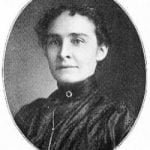
In addition to the branches that had been previously taught, arrangements were now made for special instruction in voice culture and vocal music, one hour a week for all the pupils; and the young men in agriculture, horticulture, house-painting, carpentry and masonry.
The aim of these new departments was to awaken an intelligent interest and make every one familiar with the principles that would enable them to make
The Farm,
The Garden,
The Orchard,
The Dairy,
The Cattle,
The pigs and Poultry,
all a source of greatest profit to them as owners.
An earnest effort was also made to check the stream of migration to distant schools, by bringing the work at Oak Hill to such a degree of efficiency as to meet the real needs of every young person in its vicinity.
This was successfully accomplished by a voluntary and gratuitous establishment, on the part of the superintendent and principal, of Normal and Theological departments, that were maintained as long as there was any real need for them; the former until the fall of 1907, the last year under territorial rule preceding the establishment of county normal institutes; and the latter in 1910, when the last licentiate was ordained to the full work of the gospel ministry.
Visit Of Mrs. V. P. Boggs, Secretary
The late Mrs. V. P. Boggs, secretary of the Women’s Department of the Freedmen’s Board was a welcome visitor in the fall of 1907. Her observations were afterwards summarized in a printed report as follows:
“Since the reopening of Oak Hill Academy in February 1905 it has had an era of prosperity that promises permanency. Many improvements have been made, new buildings for farm purposes have been erected, much of the land has been re-fenced and is gradually being brought under a higher state of cultivation, and there is a general improvement in the appearance of the entire premises that reflects credit on the management, as well as upon the boys who do the work. The literary work progresses under well trained teachers, and a normal department has been added that teachers may be better fitted to supply the schools, which it is hoped will be maintained in the south part of the Territory. The home department is managed, to the comfort and happiness of all by the wife of the superintendent, who ‘looketh well to the ways of her household.’ The matron’s duties, which include the general management of all matters relating to the work in the Girls’ Hall, including the sewing, laundry and kitchen departments, are performed with conscientiousness and enthusiasm. A former graduate student is rendering very efficient service in the cooking department.”
“The property of the Board, farm and buildings, is the most attractive and prosperous in appearance in that region. The location is beautiful, the buildings good for that section are well painted, the ground well fenced and in good order. Some good farm buildings have been erected by the students and they have painted other large buildings in a very workmanlike manner. Considerable land has been redeemed from a state of wildness. Thrift and order are apparent everywhere indoors and out.”-V. P. Boggs. Secretary Woman’s Department.”
Succession Of Helpers
The succession of helpers during the eight years, 1905 to 1912, inclusive, when Rev. R. E. Flickinger was Superintendent, was as follows:
Assistant Superintendent: Mrs. Mary A. Flickinger, Feb. 1, 1905, to Aug. 1, 1909.
Principals: Miss Bertha L. Ahrens, Feb. 1, 1905,-Feb. 1, 1911, having been previously custodian of the premises from Aug. 1, 1904; Mrs. W. H. Carroll, Feb. 1, to May 27, 1911; Rev. W. H. Carroll, Oct. 1, 1911, to June 13, 1912.
Matrons: Adelia M. Eaton, Feb. 1, 1905, to June 5, 1908; Mrs. John Claypool, 1908-09; Mary I. Weimer, 1909-1911; Jo Lu Wolcott, Feb. 27 to June 13, 1912.
Assistant Teachers: Carrie E. Crowe, Oct. 1, 1905 to Jan. 31, 1906; Mrs. Sarah L. Wallace, Feb. 1 to Mar. 31, 1906; Mary A. Donaldson, April 1 to May 31, 1906; Rev. W. H. Carroll, Oct. 28, 1907, to May 28, 1908, and Oct. 25, 1909, to Apr. 28, 1910; Samuel A. Folsom, Oct. 26, 1908, to May 28, 1909; Solomon H. Buchanan, Nov. 15, 1910, to 1911; Mrs. W. H. Carroll, Oct. 16, 1911, to June 13, 1912.
Assistants in the Cooking Department and Sewing Room: Malinda A. Hall, Feb. 1, 1905, to June 30, 1909, and Nov. 15, 1910, to June 15, 1911; Mrs. Virginia Wofford, 1909; Ruby Moore and Ruby Peete, 1909 to 1910; Lucretia C. Brown, 1911 to 1912; Ora Perry, 1912.
Pianist and Librarian: Solomon H. Buchanan, 1905-1912, except 1909.
Foremen, Carpenters: Samuel A. Folsom and Edward Hollingsworth in 1910.
Whilst the great need of the colored people in the South is the opportunity for intellectual, manual, moral and religious training, to all of which they are readily responsive and make encouraging improvement, it remains a fact, that the material development of the southern states depends in a great measure upon the general education and intelligence of the colored people; and that a manifestation of prejudice against their general education through public or mission schools is sinful, impolitic and unpatriotic.
It is only a few years since the report was made that in Florida 64.5 per cent, in South Carolina, 69.5, and in Louisiana, 76.4 per cent of the children of school age were un-provided for with school privileges.
Under favorable conditions it is a delightful work to supply a need for which there is so great and urgent a demand, and such manifest appreciation, and, that means so much in promoting the intelligence and thereby increasing the happiness and prosperity of so many of the common people, whose general education tends to make our nation greater.
